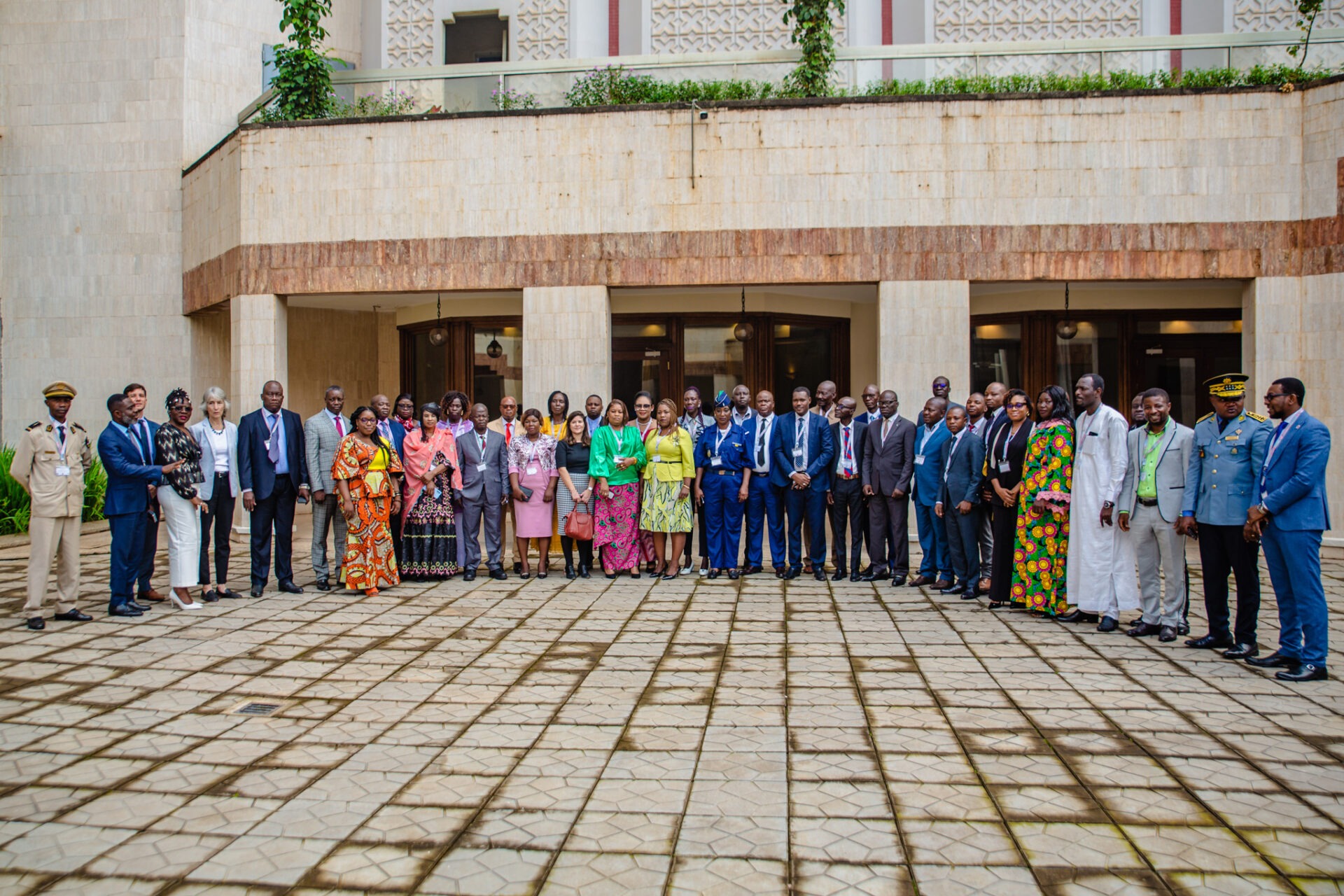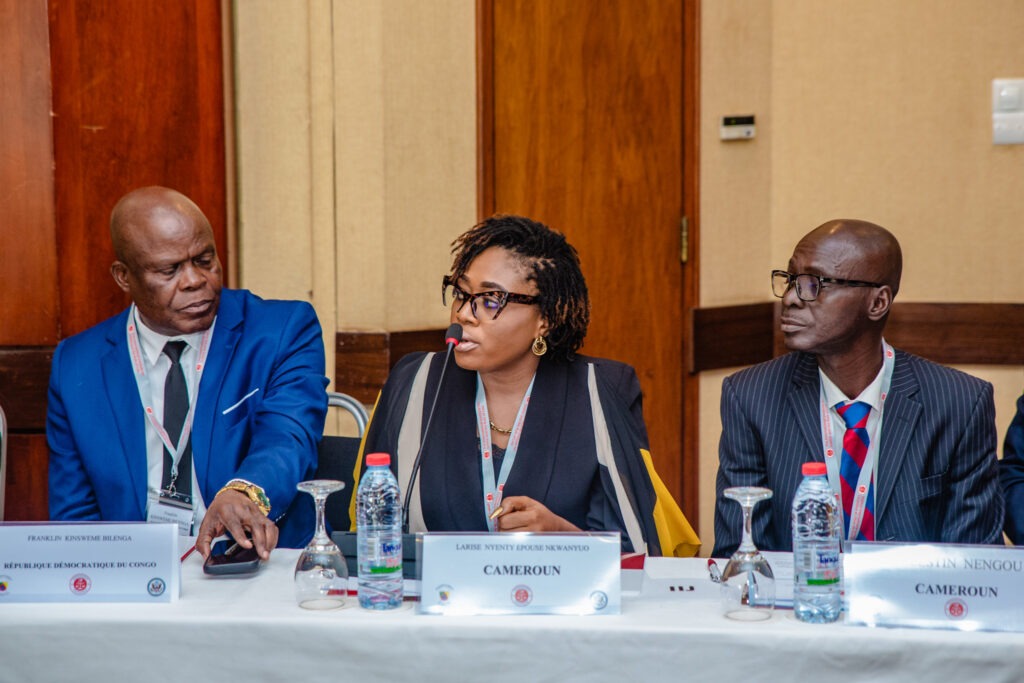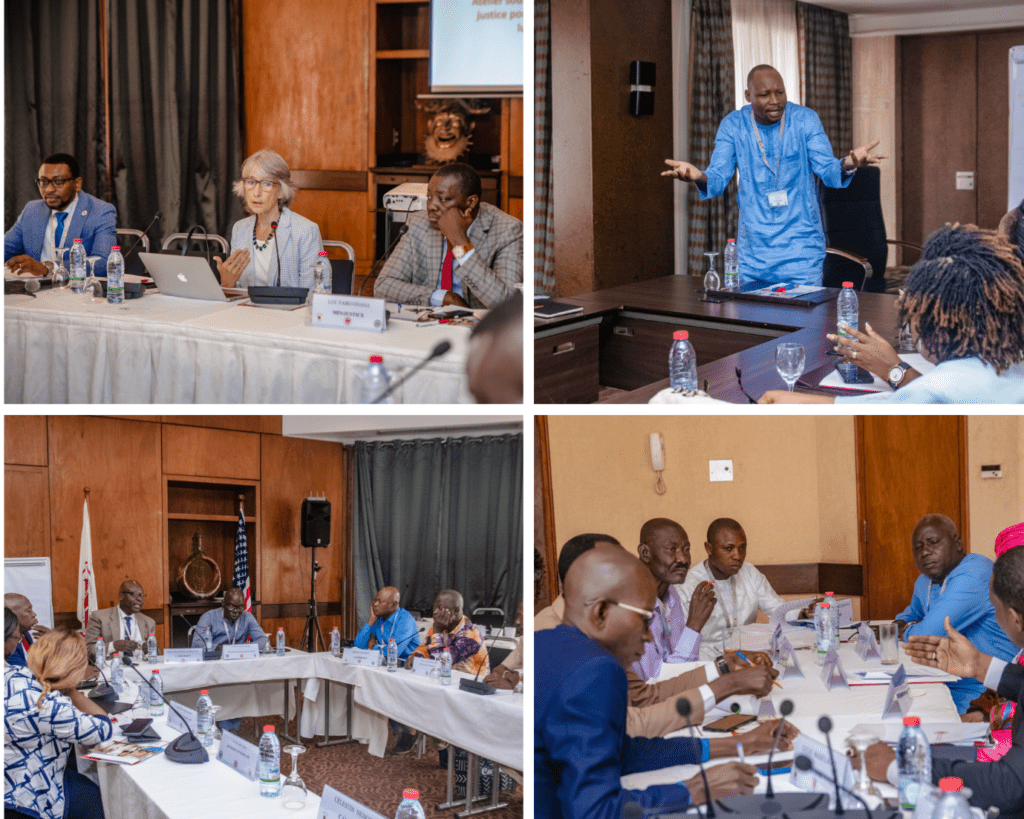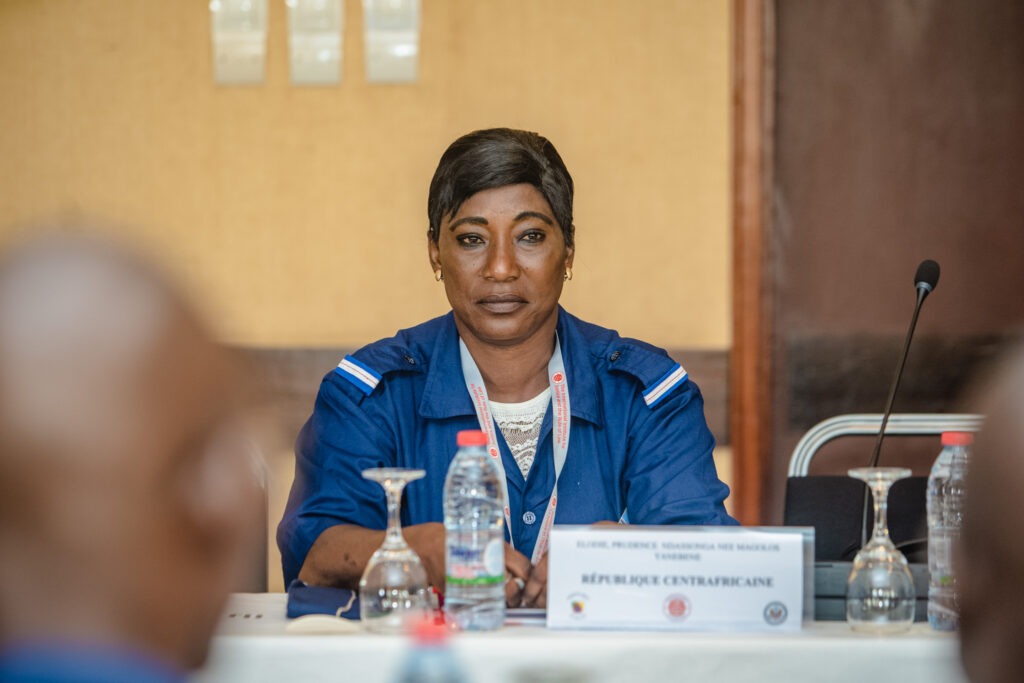
In its ongoing efforts to disseminate the IIJ Juvenile Justice Notes for Practitioners, the International Institute for Justice and the Rule of Law (IIJ) convened its first juvenile justice subregional programme in Central Africa from 4 – 6 December 2023. In partnership with Cameroon’s Ministry of Justice, the IIJ offered the IIJ Juvenile Justice Initiative: Central Africa Subregional Workshop on Juvenile Justice in a Counter-Terrorism Context in Yaounde, Cameroon. This event, sponsored by the U.S. Department of State’s Counterterrorism Bureau, convened criminal justice practitioners and other subject matter specialists from Cameroon, the Central African Republic, Chad, and the Democratic Republic of Congo.
The workshop familiarized the participants with the principles enshrined in the IIJ Juvenile Justice Notes for Practitioners and helped identify priority areas for improving the handling of children affected by terrorism and armed groups in the four beneficiary countries.

To kick off the event, participants from each represented country discussed how children affected by terrorism or non-state armed forces and groups are treated in their systems. Following presentations highlighted the importance of ensuring children's rights in a counter-terrorism context and the key principles outlined in the five IIJ Juvenile Justice Notes for Practitioners.
Through a series of dynamic, interactive and inclusive panel discussions, actors from each country and each phase of the criminal chain then explored how, where and with whom children are detained; special measures taken to protect children’s identities and particular psychosocial needs; alternatives to prosecuting children associated with criminal activity; and how best to balance the best interest of each child against public safety. In general, it emerged that all countries protect these children by law, but not always in practice.

Practitioners identified major challenges, including non-compliance with custody and detention time limits, obstacles faced by social workers and defence counsel in accessing detention facilities, lack of specialisation among certain actors in the field of terrorism, lack of evidence, inadequate assistance from social workers and lawyers, and a deficiency in rehabilitation and reintegration services and mechanisms.

On the final day, each of the four national delegations conferred for three hours in animated breakout sessions and developed practical recommendations to bring about changes in national approaches to better handle children affected by terrorist and armed groups in line with international norms.
For more information on this workshop, please contact IIJ Director of Programmes Ms. Gail Malone, maloneg@theiij.org.
